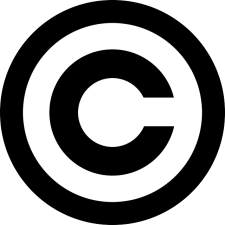There are many legal and ethical aspects to a website that a web designer must adhere to, for not only in their interest, but for the sake of the website owner also.
Apart from contracts, and issues of relations between the web designer and their clients, there are other factors that need to be addressed. Examples of such are;

Ethics
Accessibility – Accessibility is an important aspect of web design, remember that all people are different and some are unable to process information the same as others. This means that a web designer should incorporate additional information that gives aid to people with visual impairment, difficulties for example. After all, everyone is a potential customer, so good web design does not discriminate and they also happen to be ranking factors elevating a website to first page glory. Examples of accessibility elements include;
1. Contrast Ratio: eg. Having text stand out against a background colour.
2. Colours: Certain colours have meaning, red is generally stop, and green means go, so messages that are delivered in colours, will not translate to colour blindness.
3. Transcripts for Audio: Just as images aren’t available to people who can’t see, audio files aren’t available to people who can’t hear. Providing a text transcript makes the audio information accessible to people who are deaf or hard of hearing
4. Alt Tags for Images: If alt text isn’t provided for images, the image information is inaccessible, for example, to people who cannot see and use a screen reader that reads aloud the information on a page, including the alt text for the visual image.
Web accessibility encompasses all disabilities that affect access to the Web, including:
- auditory
- cognitive
- neurological
- physical
- speech
- visual
Property Rights
Copyright – This is vital to understand. Property is property regardless of what form. You must own or have permission to use it.
Data Protection
Your website will gather information, no matter what, and it is the law to inform the user you do so letting them know what you intend to do with their information. Cookie Notices you may have noticed, are those annoying pop-ups that appear when you first enter a website. This is not to annoy you but to protect you and the website owner. They are necessary to get consent for websites to collect personal information and is governed by GDPR.
Contracts
Having an agreement between the web designer and client is not just a shake of the hand and off you go. Things can get messy within any relationship and may turn sour. It is always important to spend the time fleshing out what both parties agree to from the outset so there is no confusion further down the line. Whether this is done by a solicitor, or between both parties, it should always be done. The use of a solicitor is not the cheapest option, and this would only be the case really in large projects that cost significant amounts and are more complex than normal. It could cost more down the line if not carried out if legal action is taken against either party.
All contracts are different but some of the issues that need to be addressed include
1. When payment are due?
2. Completion dates.
3. What the scope of the project is?
4. Who is responsible for doing what and when?
Competent web designers will be adept in dealing with all the above. If they are not, then you are leaving yourself open for headache. It is best practice to have an ethical web site for your business. Not only does Google Rank for it, but it will be user friendly and accessible to all and will make the world that little bit nicer a place to live in.
Check out our next blog next week. How much does a website cost? Video
